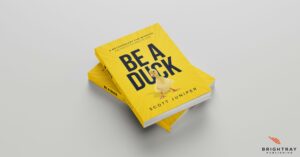Becoming a writer doesn’t happen overnight and there’s no definitive finish line where you become an “official” author. Some writers are never published or their work is celebrated posthumously. Your unpolished work still “counts,” especially if you’re committed to the process. You may feel at a loss or out of your depth, but that’s normal. Here, we’ve gathered writing tips for the at-a-loss authors to help them reach their goals.
If you started this journey thinking that you could write and publish a book in 3 months, you need to be more realistic. Professional writers could stick to this type of schedule, but they have the benefit of experience. If writing isn’t your day job, you’ll need to use the advice of others to fine-tune your writing process.
Let’s explore some tips for reaching your writing goals:
- Create a Flexible and Forgiving Schedule: Like everything else in life, writing requires balance. You shouldn’t plan on spending 8 hours a day writing, or you’ll burn yourself out. On the other hand, you can’t commit 30 minutes a week and expect your writing to make significant progress. Heck, you’ll spend half of that time making sure the atmosphere is right. Instead, try to find blocks of time you can fit into your regular routine. Make sure you give yourself some days off and allow the schedule to have some flexibility. It’s like working out alone if you’re not used to it. Commiting to 6 days after a hiatus is difficult to maintain long-term. If you start with the goal to work out 2-3 days a week, you’re much more likely to follow through. Apply this same mindset to your writing time.
- Capture Your Stream of Consciousness: Maybe for you, one of the hardest parts of writing is getting started. A schedule can help with that, but it’s also a good idea to “loosen up” your writing skills. I call this the stream of consciousness. For 5-10 minutes, articulate every thought you have. You can choose to either write these thoughts out or, if you prefer to talk them out, record them. Don’t edit your work or words, just let the thoughts flow. If you get distracted—oh look a beautiful bird—write out the interruption as I’ve just demonstrated. Ideally you’ll be writing about your topic, but the important part of this exercise is that you’re writing.
- Make Lists: This follows a similar idea as the bullet point above. If writing coherent, articulate sentences feels impossible, break your concepts down into bulleted lists. Include the key words you want to expand on and mention the sources you’d like to use. This brainstorm-approach will give you the foundation to build your writing on and will help you transfer your ideas from your head onto paper.
- Write It Like a Presentation: There’s no one right way to write a book. If you’re more familiar with giving speeches or presentations, build on that comfort. You can start off writing your book as you would a speech or presentation. This method will work for some subjects more than others, but it’s another way to get yourself writing. Once you’ve written out your “speech,” go through and make edits so it reads as a book would. There’s no wrong answer when you’re adapting your writing process to suit your skills the best.
- Don’t Get Hung Up: I understand, it’s frustrating when you can’t find the word that would explain perfectly what you’re trying to say. But with every minute you spend trying to think of the word, it’s a minute wasted. Put a placeholder word and flag it to revisit later during your round of edits. A writing draft is supposed to be rough, that’s the nature of it. The same can be said for mechanics. Grammar and style guides can be tricky, so don’t waste time verifying the rules while you’re still in the writing process. Address those mistakes later, or if it’s still too daunting, hire an editor to do it for you. Your job at this stage is to write, not make the draft ready to print.
- READ: The best writers are often avid readers. You don’t have to want to be the best to still gain a lot from reading. Identify books similar to yours and assess their layout, the voice, the organization, the use of graphics, etc. It’s by reading that you’ll learn what you want for your own book, and more importantly, what you want to avoid. If reading is too time-consuming, consult reviews of similar books and again, take notes on what you want to include or avoid. Each book already published is a potential resource.
Remember that writing is a process that’s different for each person. Cater a process that suits you best and don’t let the magnitude of the project intimidate you. There are groups of authors who meet online and in-person to share tips and offer support. If that’s not your style, find exercises and blogs with advice like this one. But above all, keep writing.
Embarking on the journey of becoming an author is a process that demands dedication, patience, and adaptability. It’s normal to feel overwhelmed or uncertain along the way, but remember that every step forward, no matter how small, brings you closer to your goal. Whether you’re fine-tuning your writing schedule, honing your stream of consciousness, or seeking inspiration through reading, there are countless resources and strategies to help you overcome obstacles and make progress.
BrightRay Publishing offers all-inclusive publishing services tailored to support authors at every stage of their journey, from refining their manuscripts to navigating the intricacies of publication. Our commitment to quality and expertise can empower you to realize your vision and bring your book to life.
Schedule a call with us today to discover how we can collaborate to make your publishing dreams a reality!




